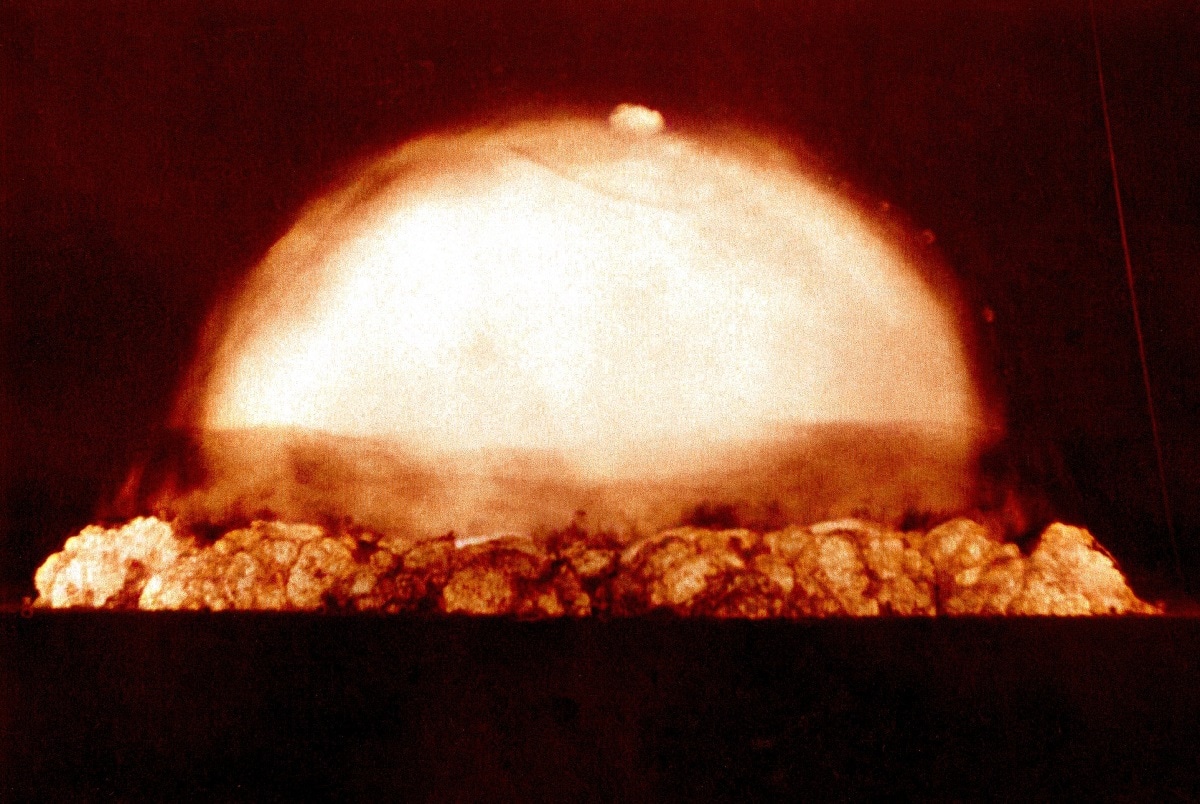It’s an ominous prospect: The Islamic Republic of Iran may seek to exploit Israel’s preoccupation with the Gaza counteroffensive against Hamas to break out of its nuclear nonproliferation obligations.
This risk will rise significantly if the regime directs its proxies to open new fronts against Israel and takes advantage of the chaos while Jerusalem’s focus and military resources are strained. President Biden must renew his credible military threat against the regime’s nuclear facilities and warn Tehran against contemplating such action.
Biden — who sternly warned Iran last week not to direct its proxies to escalate the war against Israel to additional fronts — has a special responsibility to deter Tehran from dashing to nuclear weapons. For nearly three years, his administration has stood by as the regime augmented its nuclear program with impunity in pursuit of a failed “de-escalation” effort.
Washington even unfroze $16 billion in Iranian assets and allowed Iran to earn at least $26 billion more in oil revenue by failing to enforce sanctions. The attacks by Hamas, allegedly authorized by the Islamic Republic, underscore this mistake.
Iran now possesses enough enriched uranium that, if further enriched to weapons-grade, could be used to fuel at least 10 nuclear weapons. Tehran would require 12 days to produce the nuclear material for its first weapon and four months in total to produce enough for 10. The regime would then require an unknown amount of additional time to weaponize the material for nuclear devices. Western estimates of this timeline range from several months to more than a year.
One breakout scenario involves Tehran creating a crisis at one of its three known enrichment plants by delaying access for inspectors while it enriches uranium to 90 percent, or weapons-grade.
Iran permits the International Atomic Energy Agency (IAEA) to inspect and monitor its enrichment facilities and allows near-real time enrichment monitoring devices of 60 percent enrichment, which is a stone’s throw away from 90 percent. However, Tehran last month expelled around one-third of key agency inspectors with expertise in enrichment, a worrying sign. Last January, it also enriched uranium to near-84 percent before inspectors detected it.
By enriching to weapons-grade at a known facility, Iran would run the risk of Israel or the United States preemptively bombing the plant after a prolonged denial of IAEA access. Tehran would also be vulnerable to a foreign military strike if it tried relocating the material for weaponization into atomic devices.
Another breakout risk involves Iran diverting enriched uranium stocks directly to covert facilities for further enrichment and weaponization. While there is no evidence that a covert enrichment plant currently exists, the regime has significantly reduced IAEA monitoring of its nuclear assets, such as centrifuges for uranium-enrichment, since February 2021. Iran would only require a few hundred of its fastest centrifuges to outfit a secret enrichment facility and could complete weaponization almost anywhere.
Most relevant to this scenario: Iran is storing more than 80 percent of its stocks of highly enriched uranium (HEU) — that is, uranium enriched to 20 or 60 percent — at the Esfahan Fuel Fabrication Plant. These stocks are stored in small, easily moveable containers that could quickly go missing. Once Tehran has diverted nuclear material, foreign powers may be unable to identify its location, particularly if Iran moves the material to one of many sites buried deep under mountains. From there, unhindered by foreign interference, the regime could finish fashioning nuclear devices and detonate one in a test.
Jerusalem is understandably focused on addressing and eliminating threats from Hamas and guarding against being pulled into additional Iran-backed fronts. Faced with Iranian breakout — and with imperfect information — America may need to step in and act militarily on Israel’s behalf. The United States should have a military action plan at the ready should Iran take steps to create a crisis at its enrichment facilities or relocate any nuclear material.
Hamas’ masters in Tehran will surely be looking for chances to establish the ultimate nuclear deterrent and make good on their desire to annihilate the Jewish state. Washington must deter the regime and plan accordingly.
About the Author
Andrea Stricker is a research fellow and deputy director of the Nonproliferation and Biodefense Program at the Foundation for Defense of Democracies (FDD). Follow her on X @StrickerNonpro. FDD is a nonpartisan research institute focusing on national security and foreign policy.

